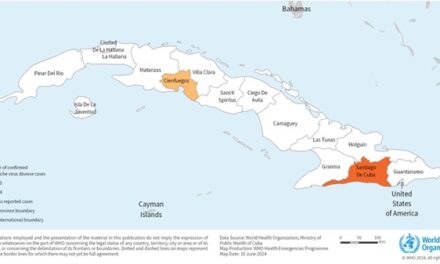A recent study published in Life Metabolism has uncovered a notable connection between circulating short-chain fatty acids (SCFAs), branched SCFAs (BCFAs), and the increased risk of developing type 2 diabetes (T2DM). The study, led by Dr. Jieli Lu at Shanghai Jiao Tong University School of Medicine, was part of the extensive China Cardiometabolic Disease and Cancer Cohort (4C) study and involved a cohort of over 190,000 adults.
Short-chain fatty acids, produced by gut bacteria during the fermentation of dietary fiber, have long been celebrated for their potential health benefits, including improving insulin sensitivity and regulating energy intake. However, the relationship between circulating SCFAs and metabolic health, particularly regarding T2DM, has not been fully understood—until now.
The study, which analyzed data from 193,846 adults aged 40 and older across 20 communities in China, included 3,414 individuals who developed incident T2DM and matched normoglycemic controls. The findings revealed a significant association between total SCFAs, total BCFAs, and isovaleric acid with the incidence of T2DM. Notably, the study found gender-specific differences, with women showing a higher risk as the concentrations of these fatty acids increased. For every standard deviation increment of circulating SCFAs, women had a 16% increased risk of developing T2DM.
Of particular interest was the connection to propionate, one of the key SCFAs, which demonstrated a significant positive association with T2DM risk in women, even after adjusting for insulin measures. This interaction underscores the potential importance of propionate in the early stages of diabetes development.
The study also suggested that the link between BCFAs, isovaleric acid, and diabetes might be mediated by insulin resistance, triglycerides, and β-cell function. This points to the multifaceted role that circulating fatty acids play in metabolic processes.
These findings, part of the largest cohort study of its kind, provide compelling evidence of the role that circulating SCFAs and BCFAs may play in the early pathogenesis of T2DM, highlighting the importance of considering gender differences in future research and treatment strategies.
Disclaimer: The findings of this study do not establish a direct cause-and-effect relationship between circulating SCFAs and the risk of type 2 diabetes. Further research is necessary to confirm these associations and to understand the underlying mechanisms involved. Please consult healthcare professionals for personalized medical advice and treatment options.
For more information, refer to the study: Shuangyuan Wang et al, Circulating short-chain and branched short-chain fatty acids and the risk of incident type 2 diabetes: findings from the 4C Study, Life Metabolism (2025). DOI: 10.1093/lifemeta/loaf001.












